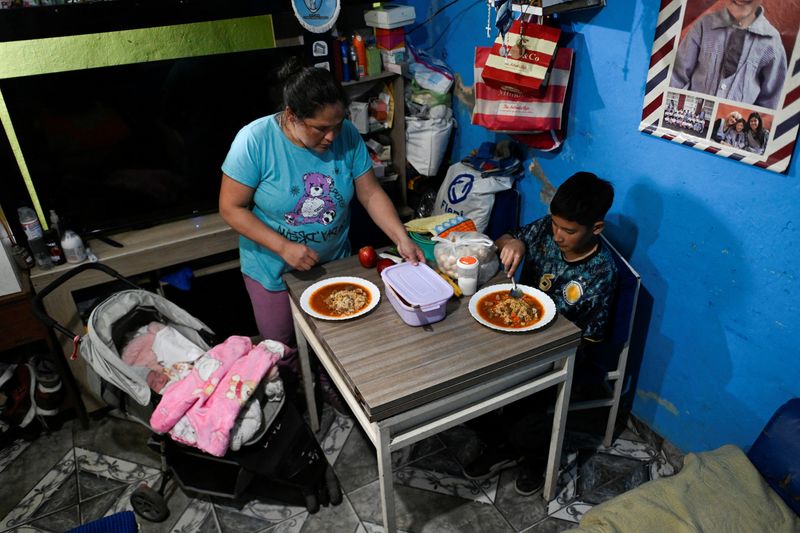Select Language

BUENOS AIRES (Reuters) -Argentina's poverty rate soared to almost 53% in the first half of the year, official data released on Thursday showed, the first hard evidence of the painful impact of libertarian President Javier Milei's tough austerity measures.
That marked a steep jump from 41.7% at the end of last year and more than double the 26% just seven years ago, underscoring the severe cost to regular Argentines of repeated economic crises that have hammered the South American nation.
The data underscores how Milei's spending cuts, aimed at overturning a deep fiscal deficit, have caused major short-term pain. The country is in a deep recession and inflation remains in triple digits, though there are signs things are improving.
"Since this government came to power, jobs have dropped away," said Irma Casal, a 53-year-old in Buenos Aires, who works three shifts as a garbage recycler, cardboard collector and bricklayer, but still struggles to stay afloat.
"We work twice as hard for less and we have to keep going."
Agustin Salvia, director of the UCA's Observatory, said that there was a significant impact at the start of the year from Milei's policies. However, there had been signs of an improvement recently, he added.
"If you look at the whole story, it shows a deterioration in the first quarter. That situation has since started to ease," he said.
Argentina's government has cut some welfare programs and reduced support to soup kitchens, but argues that it has also expanded two key welfare programs, the Universal Child Allowance and a Food Card program, giving direct support to families.
"Any level of poverty is horrendous," presidential spokesman Manuel Adorni said in a daily press conference on Thursday, blaming mismanagement by previous governments for leaving economic "bombs" that Milei was now trying to deactivate.
"We are doing everything, everything so that this situation changes."
Milei's spending cuts have been cheered by markets and investors for helping right the state's finances after years of deficits, but have pushed the country into a recession, despite signs the economy could now be bottoming out.
The Catholic University of Argentina's (UCA) observatory had estimated the poverty rate soared to 55.5% in the first quarter of the year before easing to 49.4% in the second quarter, giving a 52% average for the first six months of this year.
'ANY LEVEL OF POVERTY IS HORRENDOUS'

